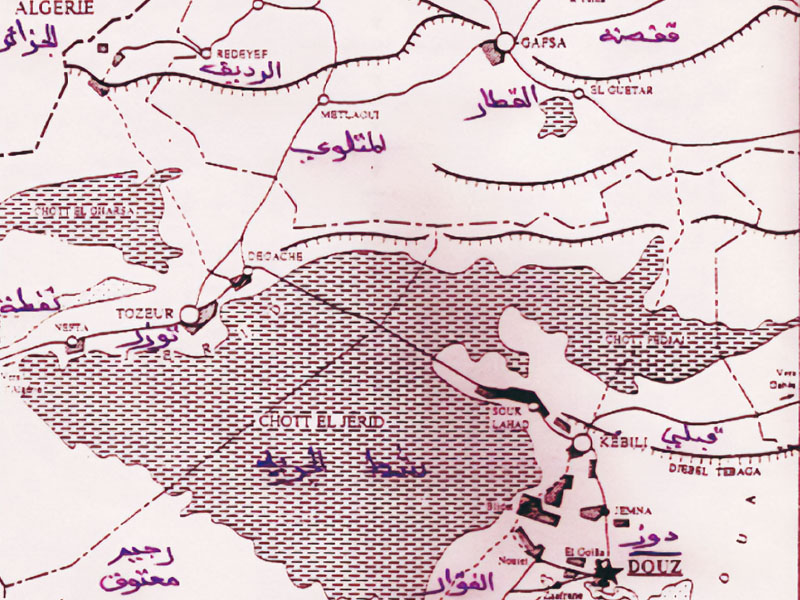Sufi Corners and Styles in Tunisia: A Case Study of Douz Region
Issue 4

Mohammad Lahoul
What makes Douz region worth investigation is that its geographical location which has made it not faraway from modern urban areas. This is in addition to its social structure which is in essence a Bedouin one. The location and the typical Bedouin lifestyles have contributed to consolidating and maintaining this Bedouin structure despite the radical changes in the Tunisian society. The distinctive features of the The ‘corner’ has become a center for teaching Quran and providing pilgrims and passersby with shelter and food before it became a place for practicing any Sufi rituals. Nowadays, people of Douz are leading a modern life though they still maintain some spiritual conceptions. The urban- Bedouin dichotomy has made Douz witness a critical change from one lifestyle to the other without delving too deeply in the harsh Bedouin style which has been prevalent for centuries and brought about a life of wandering from place to another in search for water and grass or a new lifestyle in response to the modern changes which are manifest in different spheres in the Tunisian society. The author sheds light on the Sufi corners and styles in Douz in terms of their main characteristics. The common styles include: al-Qadiri, al-Issawiya, al-Rahmaniya, Al- Arousiya, and al- Salamiya. He also indicates how such styles differ or agree. For example, al- Tarqiya does not exist in Douz but it is widespread on its outskirts. The author focuses on the implications of the visit in terms of affiliation since visitors of the graves of holy people usually affirm their religious beliefs and inclinations. Thus, the Sufi corner has become a sanctuary where visitors express their rejection of new lifestyles and traditions. This has, in turn, brought about the development of a cultural atmosphere that resulted from the conflict between a traditional social entity and a modern one. All this has its implications for individual and collective behavior while emerging from the objective cycle of life to the cycle of magical superstition. Visitors of Sufi corners are accused of sheer contradiction which leads to lack of social equilibrium which has come to light since the 1980s. All these factors have triggered some kind of spiritual feeling in those visitors as Sufi corners provide them with a sense of security and destroy the social logic based on exploitation and materialism, which are typical of the consumer society, hence some people take refuge in Sufi corners.



































































